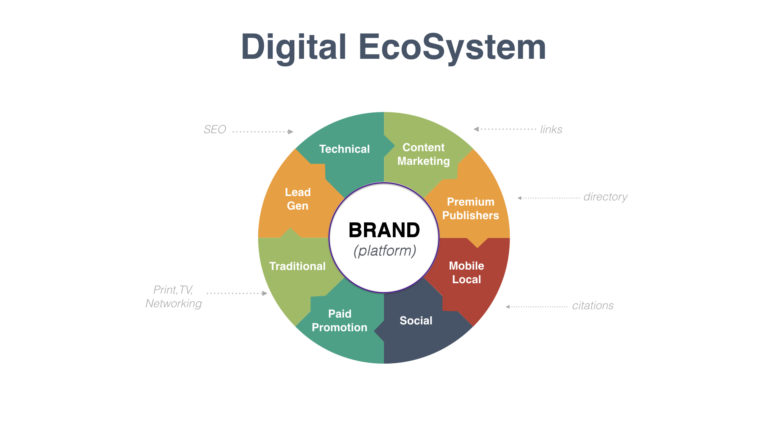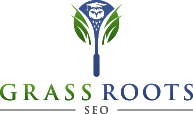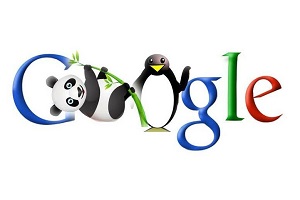What Is Internet Marketing
Definition of Internet Marketing
Internet marketing is also referred to as online marketing. Internet marketing refers to advertising and marketing efforts as a process of promoting a brand, products or services over the Internet. Internet marketing is very broad in scope referring generally to promotional activities that are done via a digital medium or “online”. Internet marketing strategies are typically used in conjunction with traditional types of advertising such as radio, television, billboards, networking, newspapers and magazines. Internet marketing added complexity in consumer engagement moving away from a linear marketing approach with one-way brand communication to consumers to a newer non-linear marketing strategy referred to as Omni-channel. Omni-channel marketing moves beyond one-to-one information exchange to one-to-many or one-to-community information sharing.
 An example of omni-channel internet marketing can be applied to a professional services vertical like legal. Legal consumers often research their legal options online well before contacting a law firm. These legal consumers are increasingly using the Internet to research into laws, legal resources, legal aid, and do-it-yourself options before researching the types of law firms that can help them. Once they understand their need is best served by hiring a law firm, these consumers then look up law firm rating and reviews, seek legal information from their social networks, compare local legal options, and search for law firms near them.
An example of omni-channel internet marketing can be applied to a professional services vertical like legal. Legal consumers often research their legal options online well before contacting a law firm. These legal consumers are increasingly using the Internet to research into laws, legal resources, legal aid, and do-it-yourself options before researching the types of law firms that can help them. Once they understand their need is best served by hiring a law firm, these consumers then look up law firm rating and reviews, seek legal information from their social networks, compare local legal options, and search for law firms near them.
The Different Channels of Internet Marketing
Effective Internet marketing commonly deploys multiple channels to reach the most audience as possible. The objective is to place your brand and value proposition in front of many potential clients in the places where people spend their time online. There are multiple online marketing channels available in the legal space namely;
- Display Advertising – Online Display Advertisement highlights promotional messages, value propositions, or ideas to the legal consumer on the Internet. Display advertising can be found on a wide range of digital properties like advertising blogs, interstitial ads, legal directories, and ads on the search engines.
- Email Marketing – While email marketing in comparison to other forms of digital marketing is inexpensive, this channel of communication may be perceived by recipients to be intrusive and irritating especially to new or potential customers. This is an older channel for digital marketing.
- Search Engine Marketing – also known as “pay-per-click” or PPC. This channel primarily focuses on text ads displayed along side relevant organic content. PPC can also include visual display, click to call, mobile ads, and local ad display within maps. When used in combination with social media and organic optimization, paid search can deliver effective results.
- Social Media Marketing – social media channels (Facebook, Twitter, Pinterest, Instagram, Google+, etc.) are closed ecosystems, users must proactively join and the information is usually only viewable when users are signed into one of these social networks. Users typically provide the content that makes the channel what it is. One example is Pinterest, which is an image channel known for food and fashion. People “PIN” (add) pictures of their favorite food or recipe and share it with others. The more content a user ads, the more engagement they drive to their page. Facebook and Twitter are prominent in the legal space. The ability to effectively create a user profile for paid promotional targeting is the primary reason social media is valuable.
- Search Engine Optimization – also known as SEO is a method of optimizing content (text, images, voice) to improve relevance for search engines with the objective of having that content display more frequently and prominently is search engine results pages. Since SEO is process of refinement over time and the results do not require payment to a search engine, search engine optimization is considered free or “organic”. SEO is not free, the best SEO companies and services often bill thousands of dollars per month or more to firms that engage with their services to increase performance. The primary benefit of SEO is that each action (click) is not billable by the search engines, so once a web page is fully optimized, it can drive value for an extended time for no cost.
- Press Releases – PR, or press release is a content marketing method of communication directed at members of the news media for the purpose of announcing something considerably newsworthy. A press release is typically written and delivered electronically via email, but can also be done as a video release.
- Video Advertising – digital video is an increasingly popular medium for online marketing. The format is widely used in social media as well as stand-alone channels like YouTube because video is readily available to be shared by the viewers, adding to the attractiveness of this platform. Video can be a highly engaging format for brands, however the quality of the video and the style of the message are critical for success as this type of advertising is considered disruptive to normal viewership. Video advertising that has entertainment value is more likely to be shared, as pleasure is the strongest motivator to share videos.
The most successful online businesses use as many channels as possible to reach out to potential clients and customers. It is increasingly important that your business reach consumers where they are most often online, and Omni-channel marketing offers this opportunity, as it’s “always on, everywhere”. Businesses that seek this long term communication relationship by using multiple channels and using promotional strategies related to their target consumer as well as word-of mouth marketing are the one that will grow their presence and revenues.
The Digital Ecosystem
Without proactive Internet marketing, a website is not much more than a digital billboard in a desert. In today’s digital ecosystem, a website acts as a conversion platform, a place where you send your audience to view your value proposition and engage with your brand. By itself, a website is nothing more than passive marketing. In legal online marketing, a firm’s website acts as a validation of legal credentials and a list of potential legal services offered with multiple ways to communicate with the firm (via email, phone, chat, and social media). To reach the maximum audience, proactive marketing channels need to be used to drive traffic to the website.

In the digital ecosystem audience acquisition can come from paid and organic channels in content marketing, premium publishers, social media, and traditional marketing. Content marketing examples include articles, press releases, or blogs posts. Premium publishers in the legal space include directories like FindLaw, Super Lawyers, AVVO, and state bar associations. Local includes chamber of commerce, better business bureau, local city and county bar associations. Social includes posts in Facebook, Tweets in Twitter, and paid social advertising. Paid includes PPC text and display ads, and inclusion in content networks. Traditional includes networking events, speaking engagements, radio, T.V., magazines and newspapers. Technical includes SEO, code platforms, https, semantic markup, and conversion rate optimization and page speed enhancements. The acquisition channels may vary, but the impact is measurable with website analytics.
While there are many ways to increase traffic to your website, the two principal ways to acquire and drive potential consumers to the website is with paid promotions or organic marketing. Both of these channels require investment of time, effort, and money, however organic traffic is more commonly viewed as a source for long term sustainable growth. In business verticals that are highly transactional in nature, paid search marketing is one of the best ways to ramp up business success online.

A seasoned digital marketing professional with over 20 years of expertise in digital marketing, search engine optimization, search engine marketing, brand development, conversion optimization, lead generation, web development and data analytics. He is a strategic digital marketing thought leader in a multitude of business verticals including automotive, education, financial services, legal marketing and professional services.

